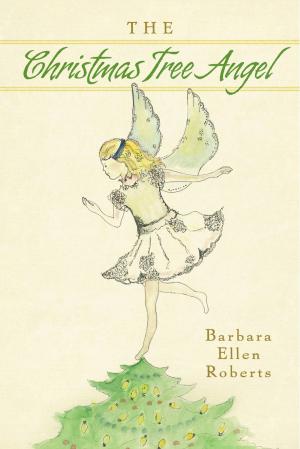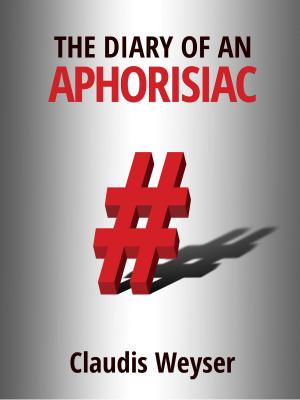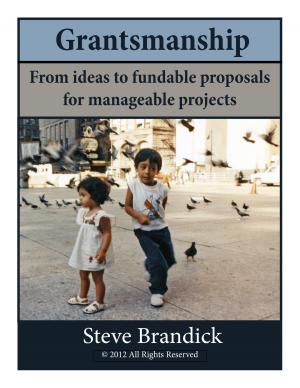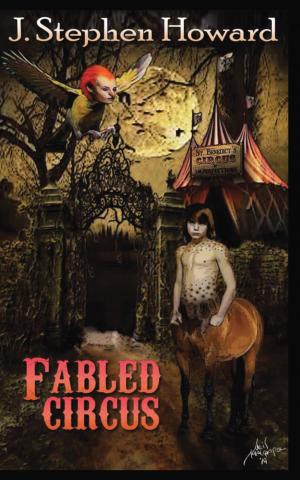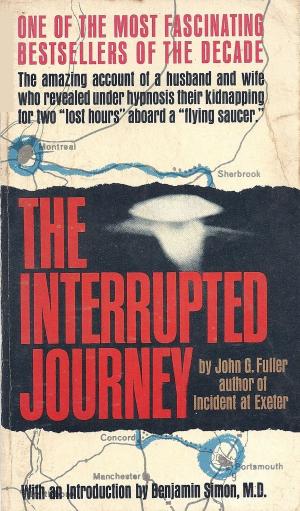| Author: | Margaret J. Anderson | ISBN: | 9781483521190 |
| Publisher: | BookBaby | Publication: | May 1, 1975 |
| Imprint: | Language: | English |
| Author: | Margaret J. Anderson |
| ISBN: | 9781483521190 |
| Publisher: | BookBaby |
| Publication: | May 1, 1975 |
| Imprint: | |
| Language: | English |
On Elizabeth’s first discovery of the tumbledown cottages at the far edge of the woods, all she saw was the rotting thatched roof and crumbling walls. Inside the air was dank and the wallpaper was stained with damp and mold. But on the next visit, escaping from the misunderstandings and misery of being the new girl at the village school, everything has changed. The decayed thatch has been replaced by new straw, the crumbling walls are intact and smoke curls from the chimneys. Most confusing of all is the girl in the faded ragged dress who is feeding the chickens. Could the girl be a ghost child who has come back to haunt the woods where she once played? Somehow Elizabeth can’t believe in a ghost who feeds chickens. Or in ghost chickens, for that matter. There must be another answer, but it is just on the edge of her understanding. Elizabeth has to see her again. On their next meeting, when the ghost child, Ann, reaches out and touches Elizabeth something happens that Elizabeth can never understand, though it was to happen again and again. They simply become one person and only Ann walks through the door of the cottage, yet Elizabeth is still there, thinking and looking and feeling as Ann did. As Elizabeth moves back and forth between the two worlds, the past becomes a vivid reality. She enjoys being part of a lively family of six children compared to her own only child status, but she soon realizes that her trouble fitting in at school is nothing compared to not having the chance to go to school at all. And there’s also the fear that she may not find her way back to the present. In 1972 our family spent a sabbatical year in a small village in Dorset living in an old thatched cottage called Random Cottage. It was the sort of place that begged for a story! One afternoon, when we were exploring the nearby woods, we came on two derelict cottages in a small clearing. On a second visit to the cottages, we were a bit unsettled to see a man tending a beehive that we were sure hadn’t been there on our previous visit. We exchanged a few pleasantries about the weather and went on our way. Back in Oregon, with the memory of this incident still in my mind, I began to write about a girl living in Random Cottage, who finds the ramshackle houses in the woods. On a second visit, instead of seeing a man tending bees, the girl encounters someone of her own age -- a girl who had once lived in one of the cottages. While we were in Dorset, the village school had a big celebration marking its hundredth year. Many of the nearby towns and villages were celebrating their centennial that same year. It was more than a coincidence. A hundred years earlier, an Education Act mandated that all children should learn to read and write. I sent Elizabeth, who was having a hard time fitting in at the village school, back to a past where a new school was being built, but she would to go. “This story has such a beautiful weave of today and yesterday – you will be compelled to read it again and again. I read it many times as a child and found that I enjoy it just as much now! . . .I would actually give this book more than 5 stars if I could . . . Amber Rieder “One of my very top favorite books from when I was a child. Such a gem! I had the great pleasure of meeting Margaret Anderson in person when she came to speak at our school when I was in 5th or 6th gradw. My parents allowed me to buys this book along with Searching for Shona. Ms. Anderson signed both books. Unfortunately, over the (many) ensuing years, both books were misplaced/lost/destroyed/ I am thrilled to find Shona is available in the Kindle edition and hope one day To Nowhere and Back will also be available again. … What a treasure this book is!” . . . Meredith So that’s why I’m issuing this title as an e-book! Margaret Anderson
On Elizabeth’s first discovery of the tumbledown cottages at the far edge of the woods, all she saw was the rotting thatched roof and crumbling walls. Inside the air was dank and the wallpaper was stained with damp and mold. But on the next visit, escaping from the misunderstandings and misery of being the new girl at the village school, everything has changed. The decayed thatch has been replaced by new straw, the crumbling walls are intact and smoke curls from the chimneys. Most confusing of all is the girl in the faded ragged dress who is feeding the chickens. Could the girl be a ghost child who has come back to haunt the woods where she once played? Somehow Elizabeth can’t believe in a ghost who feeds chickens. Or in ghost chickens, for that matter. There must be another answer, but it is just on the edge of her understanding. Elizabeth has to see her again. On their next meeting, when the ghost child, Ann, reaches out and touches Elizabeth something happens that Elizabeth can never understand, though it was to happen again and again. They simply become one person and only Ann walks through the door of the cottage, yet Elizabeth is still there, thinking and looking and feeling as Ann did. As Elizabeth moves back and forth between the two worlds, the past becomes a vivid reality. She enjoys being part of a lively family of six children compared to her own only child status, but she soon realizes that her trouble fitting in at school is nothing compared to not having the chance to go to school at all. And there’s also the fear that she may not find her way back to the present. In 1972 our family spent a sabbatical year in a small village in Dorset living in an old thatched cottage called Random Cottage. It was the sort of place that begged for a story! One afternoon, when we were exploring the nearby woods, we came on two derelict cottages in a small clearing. On a second visit to the cottages, we were a bit unsettled to see a man tending a beehive that we were sure hadn’t been there on our previous visit. We exchanged a few pleasantries about the weather and went on our way. Back in Oregon, with the memory of this incident still in my mind, I began to write about a girl living in Random Cottage, who finds the ramshackle houses in the woods. On a second visit, instead of seeing a man tending bees, the girl encounters someone of her own age -- a girl who had once lived in one of the cottages. While we were in Dorset, the village school had a big celebration marking its hundredth year. Many of the nearby towns and villages were celebrating their centennial that same year. It was more than a coincidence. A hundred years earlier, an Education Act mandated that all children should learn to read and write. I sent Elizabeth, who was having a hard time fitting in at the village school, back to a past where a new school was being built, but she would to go. “This story has such a beautiful weave of today and yesterday – you will be compelled to read it again and again. I read it many times as a child and found that I enjoy it just as much now! . . .I would actually give this book more than 5 stars if I could . . . Amber Rieder “One of my very top favorite books from when I was a child. Such a gem! I had the great pleasure of meeting Margaret Anderson in person when she came to speak at our school when I was in 5th or 6th gradw. My parents allowed me to buys this book along with Searching for Shona. Ms. Anderson signed both books. Unfortunately, over the (many) ensuing years, both books were misplaced/lost/destroyed/ I am thrilled to find Shona is available in the Kindle edition and hope one day To Nowhere and Back will also be available again. … What a treasure this book is!” . . . Meredith So that’s why I’m issuing this title as an e-book! Margaret Anderson

